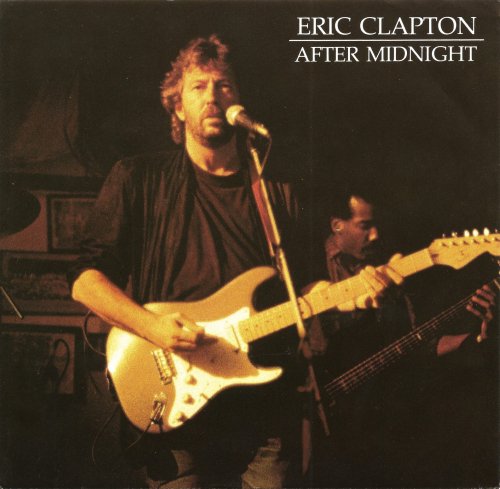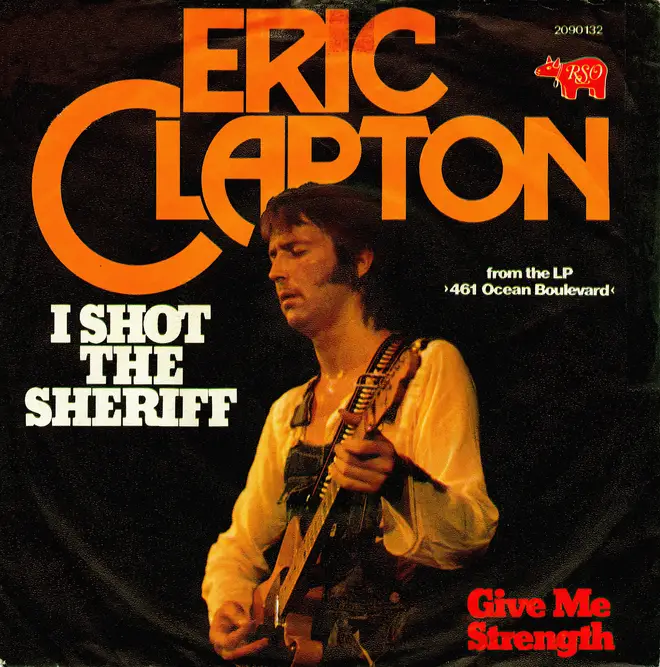“I Shot the Sheriff” – Eric Clapton

I Shot the Sheriff: Eric Clapton’s Reggae-Rock Crossover
“I Shot the Sheriff,” originally written and recorded by Jamaican reggae legend Bob Marley and the Wailers in 1973, was famously covered by British rock musician Eric Clapton in 1974. Clapton’s version brought the song to a broader international audience and became a significant hit, blending reggae with rock elements. Here’s an in-depth look at this influential track:
Musical Composition and Style:
Eric Clapton’s rendition of “I Shot the Sheriff” retains the core reggae rhythm of the original but infuses it with his distinctive rock and blues guitar style. The song features a laid-back groove with a prominent bass line and offbeat guitar strumming characteristic of reggae music.
Clapton’s guitar work, however, adds a layer of complexity and depth to the track. His fluid guitar solos and riffs provide a rock edge that complements the reggae beat, creating a fusion that appealed to a wide audience. The interplay between the reggae rhythm and Clapton’s bluesy guitar licks is a defining feature of the track.
The production, overseen by Tom Dowd, ensures a polished sound that highlights both the rhythmic elements of reggae and the melodic and harmonic aspects of rock. The use of backup vocals and the smooth integration of keyboard and percussion further enhance the track’s rich texture.

Lyrics and Themes:
The lyrics of “I Shot the Sheriff” tell a dramatic story from the perspective of a man who confesses to shooting a sheriff but insists he did not kill the deputy. The narrative is filled with themes of injustice, self-defense, and paranoia. The protagonist feels targeted and persecuted, and his actions are portrayed as a response to these perceived threats.
Lines like “Sheriff John Brown always hated me / For what, I don’t know / Every time I plant a seed / He said, ‘Kill it before it grow'” suggest a deeper commentary on systemic oppression and the struggle for justice. While Bob Marley’s original version carries a strong sense of political and social commentary, Clapton’s cover focuses more on the personal and emotional aspects of the story.

Commercial Success and Critical Acclaim:
Clapton’s “I Shot the Sheriff” was a commercial triumph, reaching number 1 on the Billboard Hot 100 chart in the United States in September 1974. This success marked Clapton’s first and only number-one hit on the Billboard Hot 100 as a solo artist, solidifying his status as a major figure in rock music.
Critically, the song was well-received for its innovative blending of reggae and rock. Clapton’s ability to honor the essence of Marley’s original while adding his unique touch was praised by music critics and fans alike. The track’s success helped introduce reggae music to a broader audience, paving the way for greater appreciation of the genre outside of Jamaica.
Cultural Impact and Legacy:
“I Shot the Sheriff” has had a lasting impact on both reggae and rock music. Clapton’s cover brought reggae to mainstream rock audiences, contributing to the genre’s global popularity. The song’s fusion of styles demonstrated the versatility of reggae and its potential to blend seamlessly with other musical forms.
Bob Marley himself expressed appreciation for Clapton’s cover, acknowledging the role it played in spreading his music and message to a wider audience. The song remains a staple in Clapton’s live performances and has been included in various greatest hits compilations.
The enduring popularity of “I Shot the Sheriff” is evident in its continued airplay on classic rock and reggae radio stations, as well as its influence on subsequent artists who have explored genre-blending in their music.
Conclusion:
Eric Clapton’s cover of “I Shot the Sheriff” stands as a landmark moment in the fusion of reggae and rock music. By bringing Bob Marley’s powerful narrative to a wider audience, Clapton not only achieved commercial success but also contributed to the global appreciation of reggae. The song’s memorable guitar work, compelling lyrics, and innovative blend of musical styles ensure its place as a timeless classic in both Clapton’s repertoire and the broader music landscape.
